
Seventy-five springs ago a borrowed bomber landed in Athens, bearing the wife of the British Ambassador and a consignment of curtains. Also on board was a young artist who had cadged a lift and whose dream had just come true.
Born into a large, musical and bohemian family in London in 1922, John Craxton had been a nomad from childhood. Crashing out of seven or eight schools and palmed off with a long line of family friends and relations, he had only ever wanted to draw and paint – and, from an early point, to live and work in Greece. Shunning formal tuition in art, as in everything else, he learned by looking and being, and by making the most of enormous amounts of good fortune, charm and talent.
But he added productivity to providence by utilising astonishing wits and willpower to exploit every opportunity. He maintained that almost all of us encounter a lot of luck – we need only to recognise it and act upon it swiftly and decisively before the moment passes.
Given this philosophy, it goes without saying that he could be reckless in the extreme and landed inevitably in many scrapes during his very own adventure story.
In Craxton’s unassailable view, being an artist was essentially an exercise in personal freedom – influences abounded but the point was to pursue an individual path come what may. And he always had the courage of his hedonistic convictions, and an endless curiosity bringing self-made erudition and a singular vision, to paint a life of pleasure.
Bu hikaye Artists & Illustrators dergisinin July 2021 sayısından alınmıştır.
Start your 7-day Magzter GOLD free trial to access thousands of curated premium stories, and 9,000+ magazines and newspapers.
Already a subscriber ? Giriş Yap
Bu hikaye Artists & Illustrators dergisinin July 2021 sayısından alınmıştır.
Start your 7-day Magzter GOLD free trial to access thousands of curated premium stories, and 9,000+ magazines and newspapers.
Already a subscriber? Giriş Yap

Still life IN 3 HOURS
Former BP Portrait Award runner-up FELICIA FORTE guides you through a simple, structured approach to painting alla prima that tackles dark, average and light colours in turn
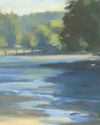
Movement in composition
Through an analysis of three masterworks, landscape painter and noted author MITCHELL ALBALA shows how you can animate landscape composition with movement
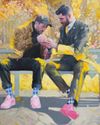
Shane Berkery
The Irish-Japanese artist talks to REBECCA BRADBURY about the innovative concepts and original colour combinations he brings to his figurative oil paintings from his Dublin garden studio
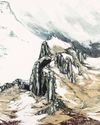
The Working Artist
Something old, something new... Our columnist LAURA BOSWELL has expert advice for balancing fresh ideas with completing half-finished work
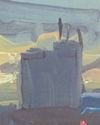
Washes AND GLAZES
Art Academy’s ROB PEPPER introduces an in-depth guide to incorporating various techniques into your next masterpiece. Artwork by STAN MILLER, CHRIS ROBINSON and MICHELE ILLING
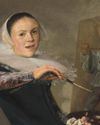
Hands
LAURA SMITH continues her new four-part series, which encourages you to draw elements of old master paintings, and this month’s focus is on capturing hands

Vincent van Gogh
To celebrate The Courtauld’s forthcoming landmark display of the troubled Dutch master’s self-portraits, STEVE PILL looks at the stories behind 10 of the most dramatic works on display
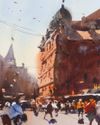
BRING THE drama
Join international watercolour maestro ALVARO CASTAGNET in London’s West End to paint a dramatic street scene
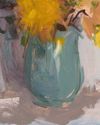
Serena Rowe
The Scottish painter tells STEVE PILL why time is precious, why emotional responses to colour are useful, and how she finds focus every day with the help of her studio wall

Bill Jacklin
Chatting over Zoom as he recovers from appendicitis, the Royal Academician tells STEVE PILL about classic scrapes in New York and his recent experiments with illustration